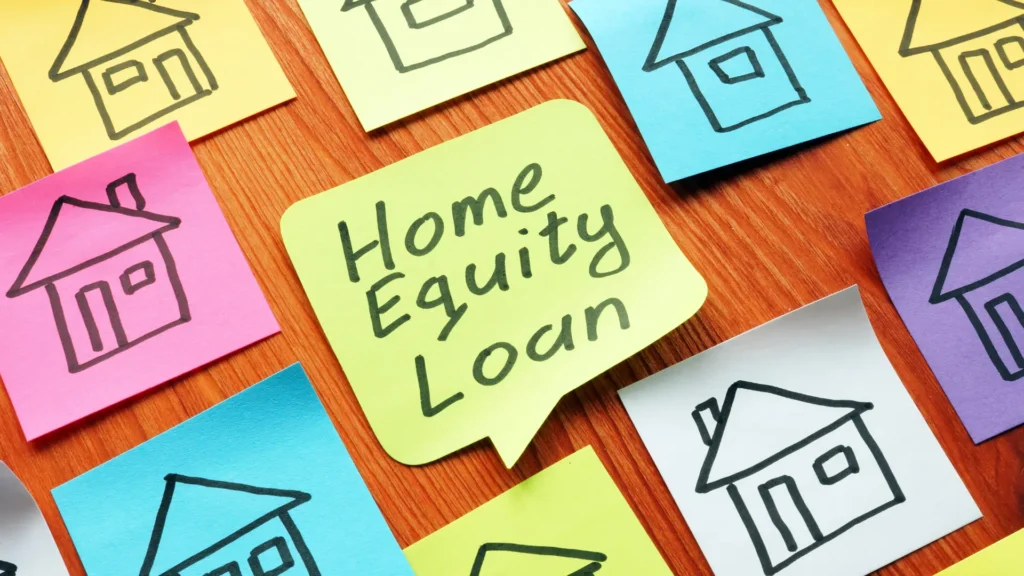
What is Home Equity and How Can You Use It?
Home equity is one of the most valuable financial assets homeowners can build over time. But what exactly is it, and how can you leverage it to your advantage? In this blog, we’ll explore the concept of home-equity, how it works, and the various ways you can use it to achieve your financial goals.
What is Home Equity?
Home-equity is the portion of your home that you truly “own.” It’s the difference between your home’s current market value and the amount you still owe on your mortgage. For example, if your home is worth 400,000 and you owe 250,000 on your mortgage, your home equity is $150,000.
Home equity grows in two ways:
- Paying Down Your Mortgage: As you make monthly mortgage payments, you reduce the principal balance, increasing your equity.
- Home Appreciation: If your home’s value increases due to market conditions or home improvements, your equity grows.
How to Calculate Home Equity
Calculating your home-equity is simple. Use this formula:
Home-Equity = Current Market Value of Your Home−Remaining Mortgage Balance
For example:
Home value: $350,000
Mortgage balance: $200,000
Home equity: $150,000
To get an accurate estimate of your home’s current market value, consider getting a professional appraisal or checking comparable home prices in your area.
How Can You Use Home Equity?
Once you’ve built up home equity, you can tap into it for various financial needs. Here are some common ways to use equity in the home:
Home Equity Loans
Equity in the home loan allows you to borrow a lump sum of money using your home equity as collateral. These loans typically have fixed interest rates and repayment terms, making them a predictable option for large expenses like home renovations, debt consolidation, or education costs.
Home Equity Line of Credit (HELOC)
A HELOC is a revolving line of credit that lets you borrow against your home equity as needed. It works like a credit card, with a draw period (usually 5-10 years) where you can access funds and a repayment period to pay back what you’ve borrowed. HELOCs are ideal for ongoing expenses or projects with uncertain costs.
Cash-Out Refinance
With a cash-out refinance, you replace your existing mortgage with a new, larger loan and receive the difference in cash. This option is beneficial if you can secure a lower interest rate or need a significant amount of money for major expenses like home improvements or investments.
Selling Your Home
If you decide to sell your home, your equity is the amount you’ll walk away with after paying off your mortgage and closing costs. This can be a great way to fund a new home purchase, retirement, or other financial goals.
Reverse Mortgage (For Seniors)
A reverse mortgage allows homeowners aged 62 or older to convert part of their home equity into cash without selling the home. The loan is repaid when the homeowner moves out or passes away. This option can provide additional income during retirement.
Benefits of Using Equity in the Home
- Lower Interest Rates: Home-equity loans and HELOCs often have lower interest rates compared to credit cards or personal loans.
- Tax Deductions: In some cases, the interest paid on home equity loans or HELOCs may be tax-deductible if the funds are used for home improvements.
- Flexibility: Home-equity can be used for a wide range of purposes, from home repairs to debt consolidation.
Risks of Using Equity in the Home
- While equity in the home can be a powerful financial tool, it’s important to use it wisely. Here are some risks to consider:
- Your Home is Collateral: If you fail to repay a home equity loan or HELOC, you could lose your home to foreclosure.
- Debt Accumulation: Borrowing against your home equity can lead to increased debt if not managed responsibly.
- Market Fluctuations: If home values decline, your equity could shrink, leaving you with less financial flexibility.
Tips for Building and Using Equity in the Home
- Invest in Home Improvements: Upgrading your home can increase its value and boost your equity.
- Monitor Market Trends: Keep an eye on local real estate trends to understand how your home’s value may change over time.
- Borrow Responsibly: Only use equity in the home for needs that will improve your financial situation, such as home repairs or debt consolidation.
Conclusion
Home equity is a valuable asset that can provide financial flexibility and help you achieve your goals. Whether you’re looking to fund home improvements, consolidate debt, or prepare for retirement, understanding how to build and use home equity is key. However, it’s essential to weigh the benefits against the risks and borrow responsibly. By doing so, you can make the most of your equity in the home and secure your financial future.






